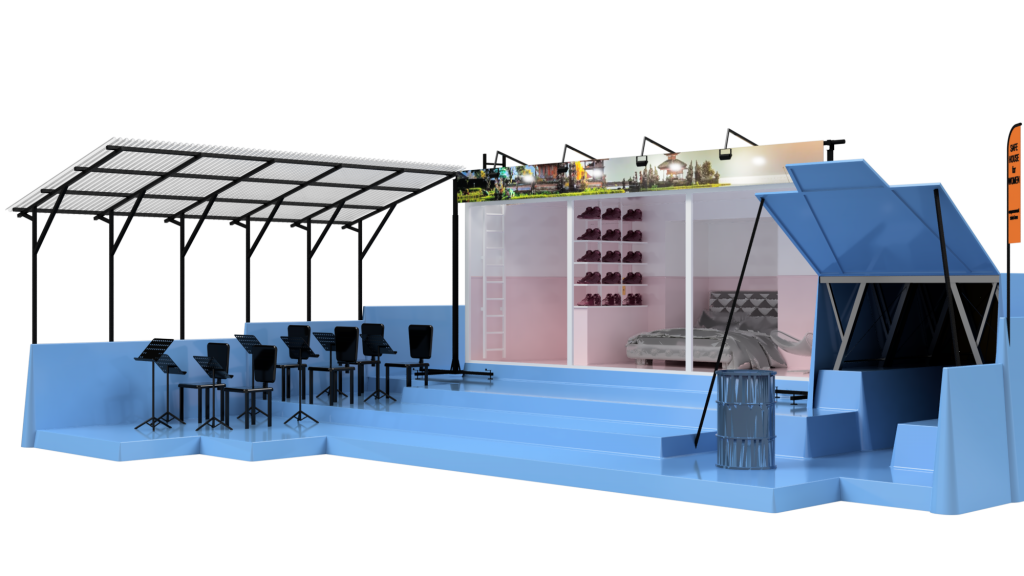Rusalka
staging and set concept for Dvořák’s opera – finals competition Landesbühne Sachsen, September 2022
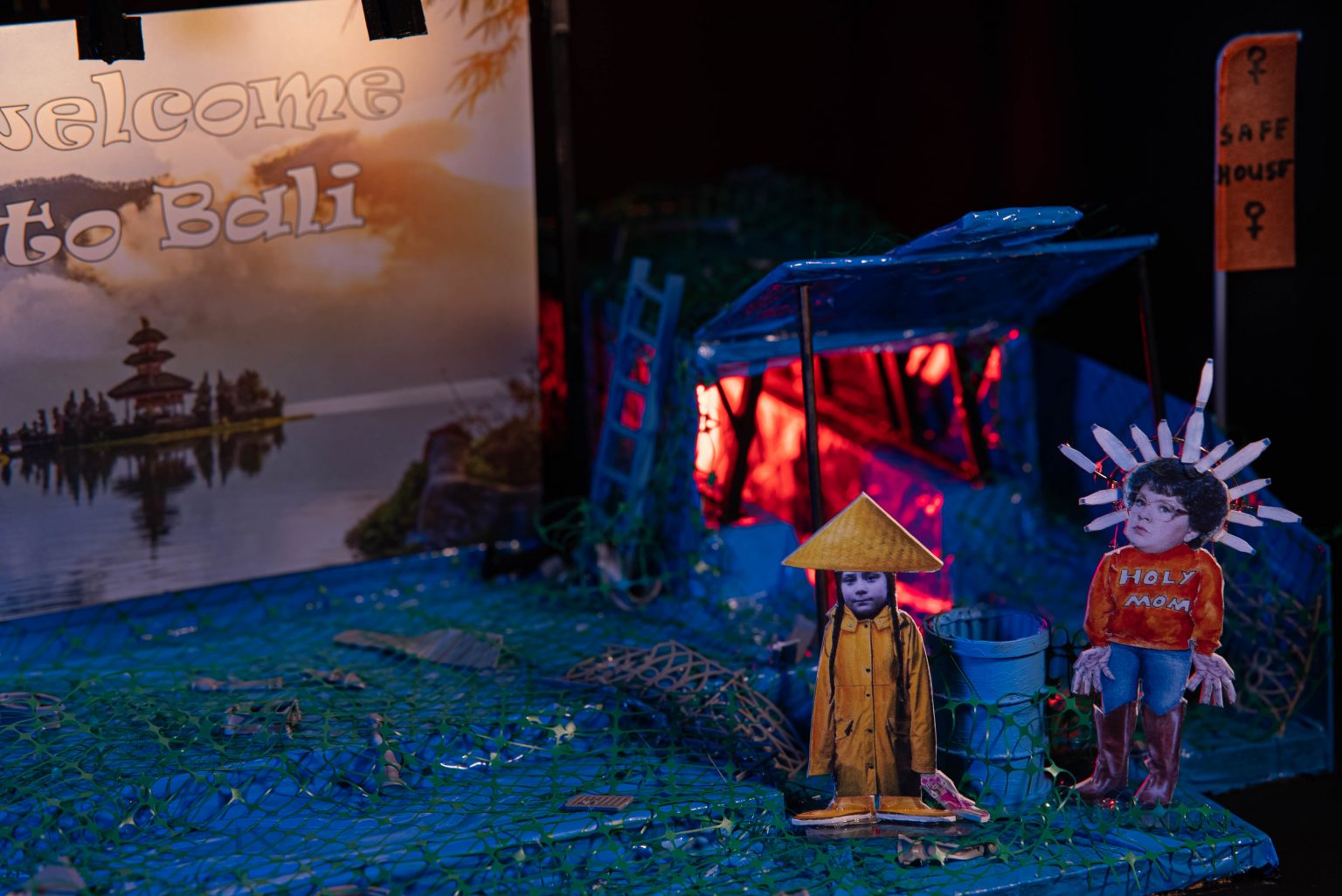
ABOUT
On the Indonesian island of Bali there is a thriving community of so-called “Young Creatives”: young, Europe- or America-born adults, who moved to Bali to work in the creative industries. The product they market is often themselves: On social media platforms and in blog posts, they document their own lives and give lifestyle tips. With the money they earn and the financial backing they usually still enjoy from home, they can live like a king in a low-cost country like Bali: with a luxurious villa, their own domestic staff and a swimming pool. In our interpretation of the Rusalka story, the prince is one such young creative who has recently moved to Bali. The foreign princess is also part of the community of young creatives.
Psychologically, these young creatives are often particularly narcissistic and egocentric: the world revolves around them and they find it difficult to empathise with others. Abuses in the interior, the hardships of the indigenous population and an impending ecological catastrophe do not really penetrate, but are only used as a backdrop. Since they are only focused on themselves, it is also extremely difficult for them to build lasting relationships with others. As a result, they often remain on their own. The short-lived relationship between the prince and the foreign princess is an example of this.
Opposite this world is the native population of Bali. This includes the water goblin and his daughter Rusalka. The water goblin is a fisherman who has been fishing in the waters around Bali for centuries, but whose yields are diminishing due to increasing pollution. Where he used to bring home a net full of fish, he now only hauls in waste. He stores them on land, hoping to clean up the sea this way and one day catch real fish again. His daughter Rusalka shares his ecological concern.
Jezibaba is a middle figure: she is not a local woman, but she lives with the fishermen in the slums and on the polluted beaches of Bali. She was born elsewhere and once came to the island as a nun out of charity. After decades of social work, however, her Christianity has mixed with local religions, making her a curiosity. A social worker, a herbalist, someone who knows exactly what is going on in Bali and has therefore become somewhat cynical. With a women’s shelter, she tries to offer protection to women who have been victims of rape – and there are many of them in Bali, where the gap between rich and poor is very wide.
TEAM
Mien Bogaert, staging and set
Dennis Peschke, costumes
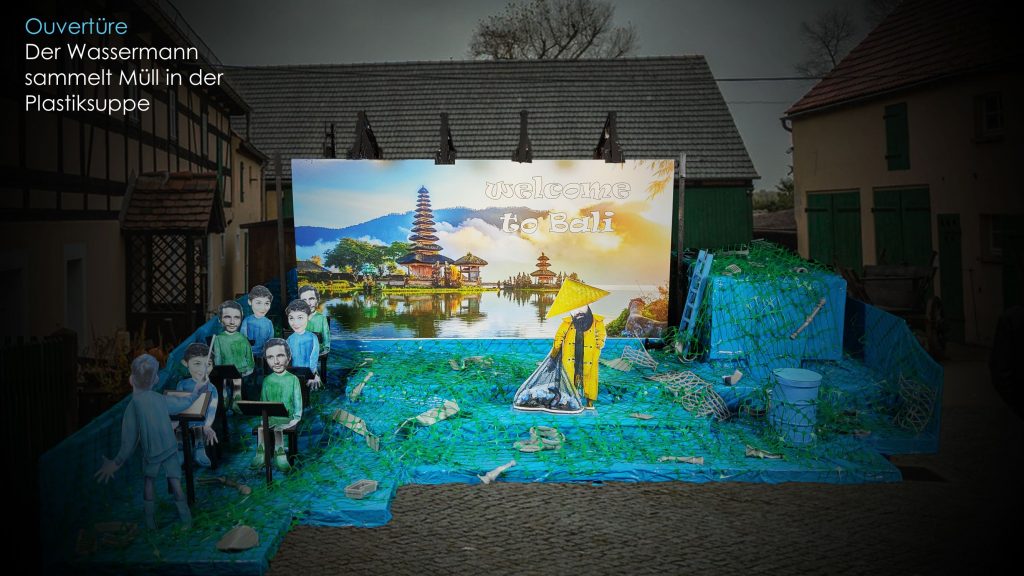
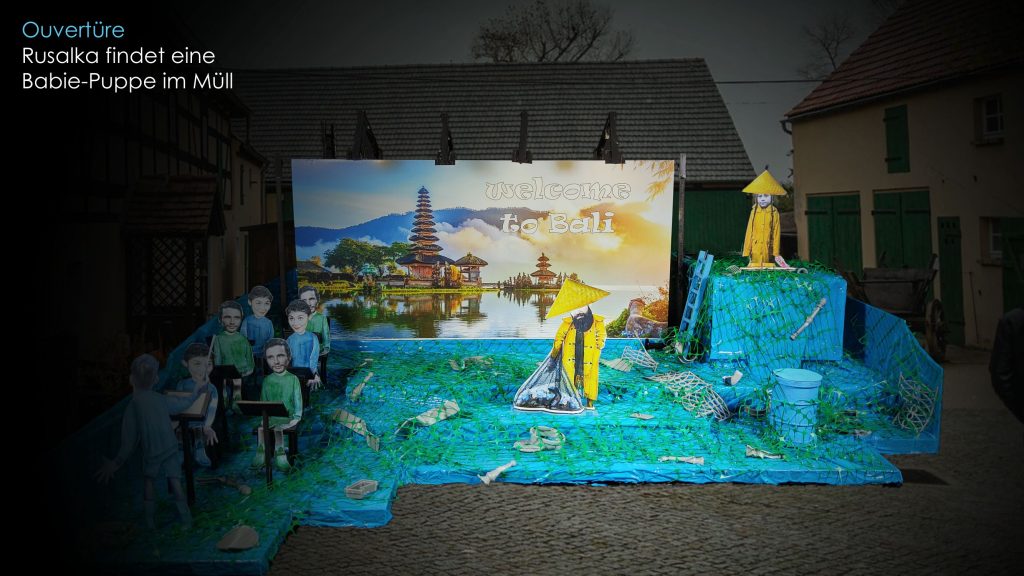
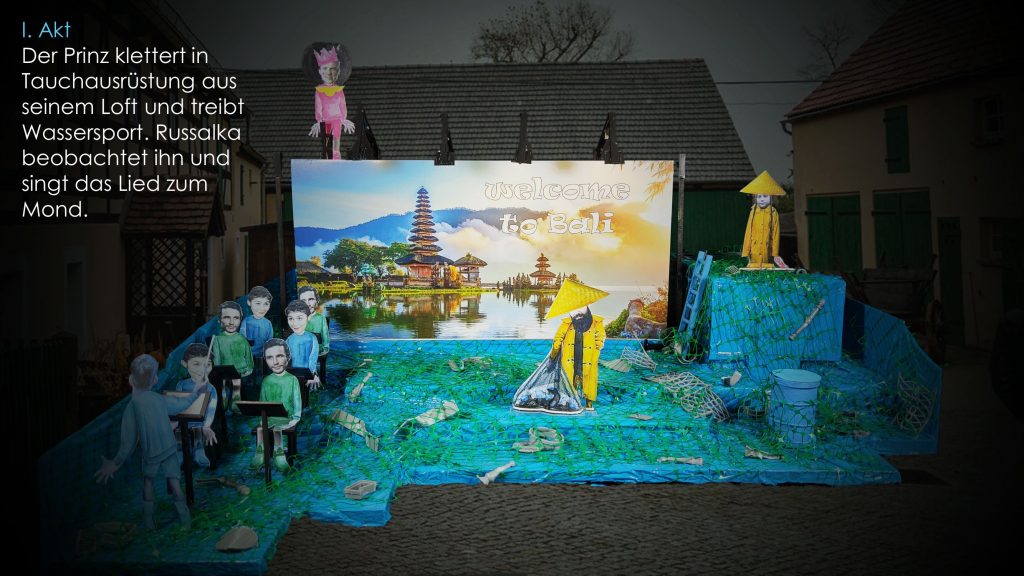
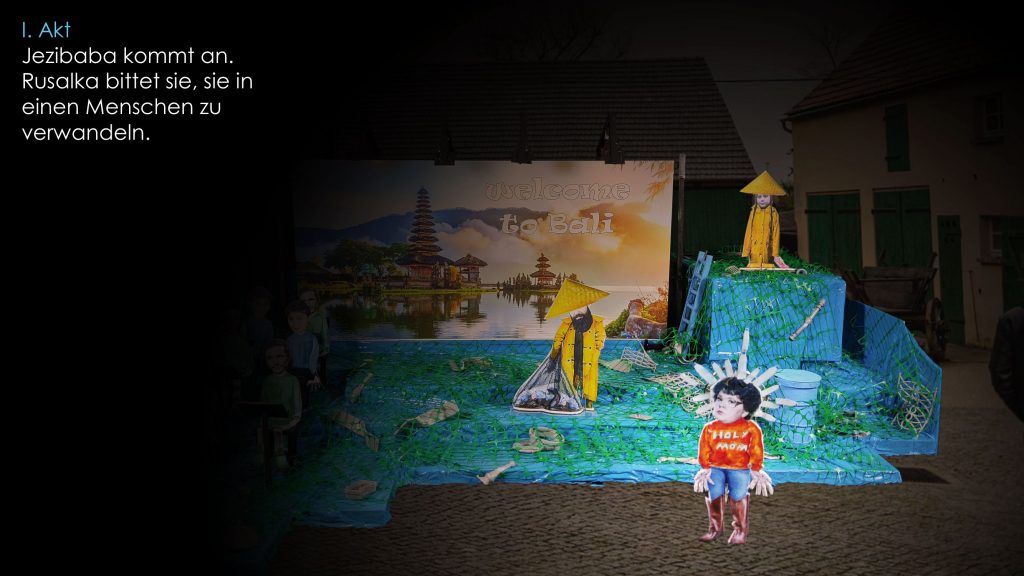
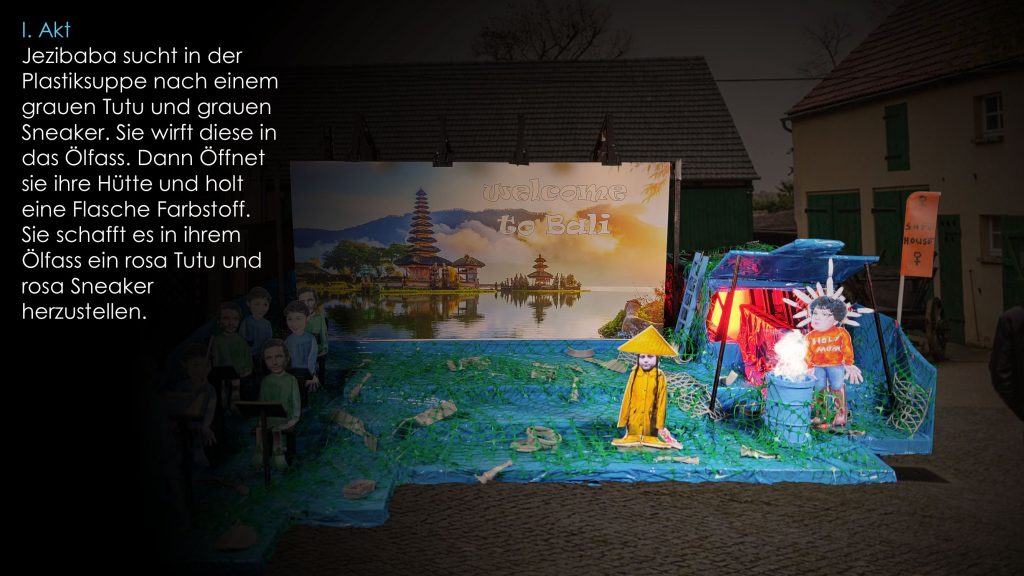
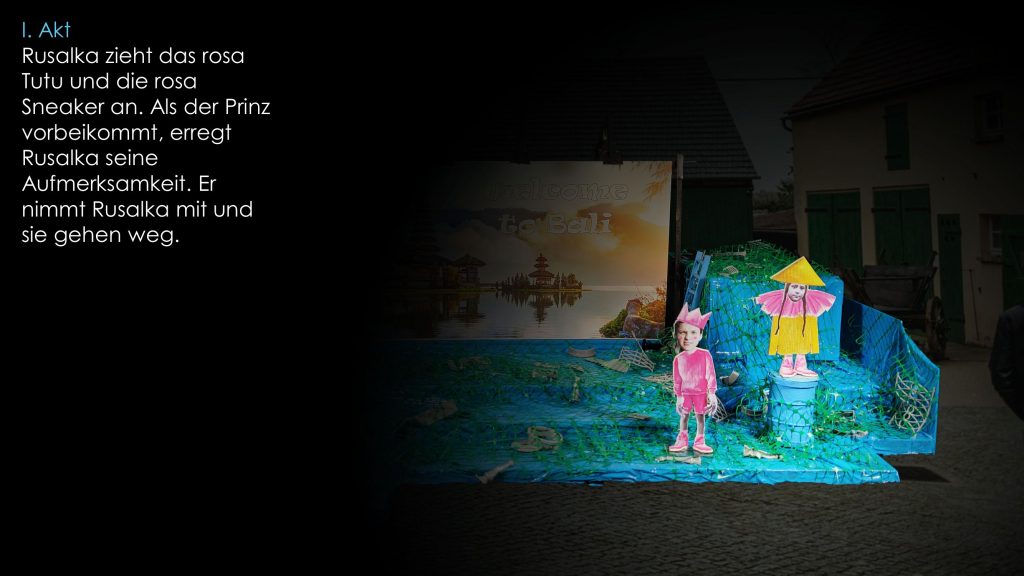
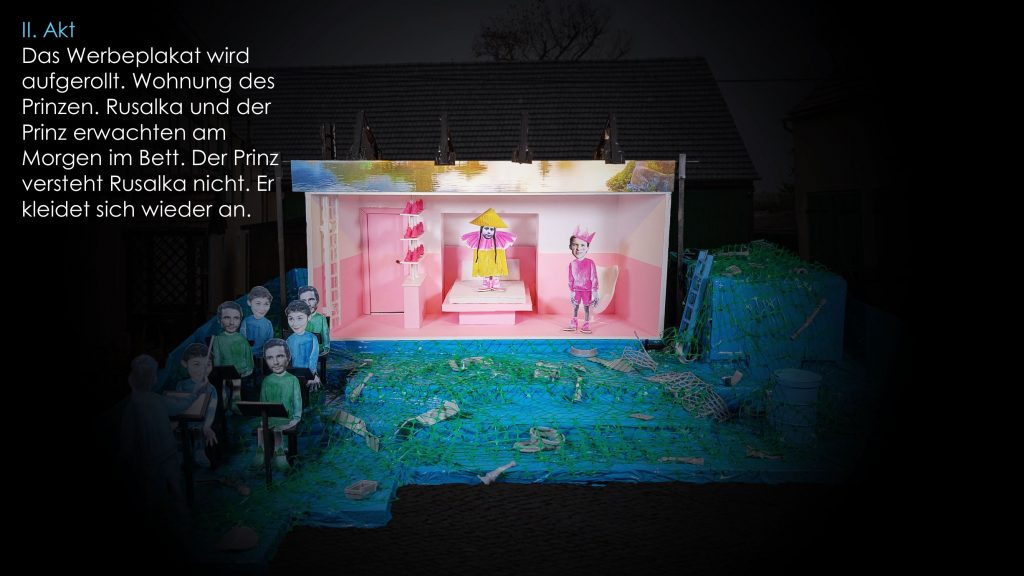
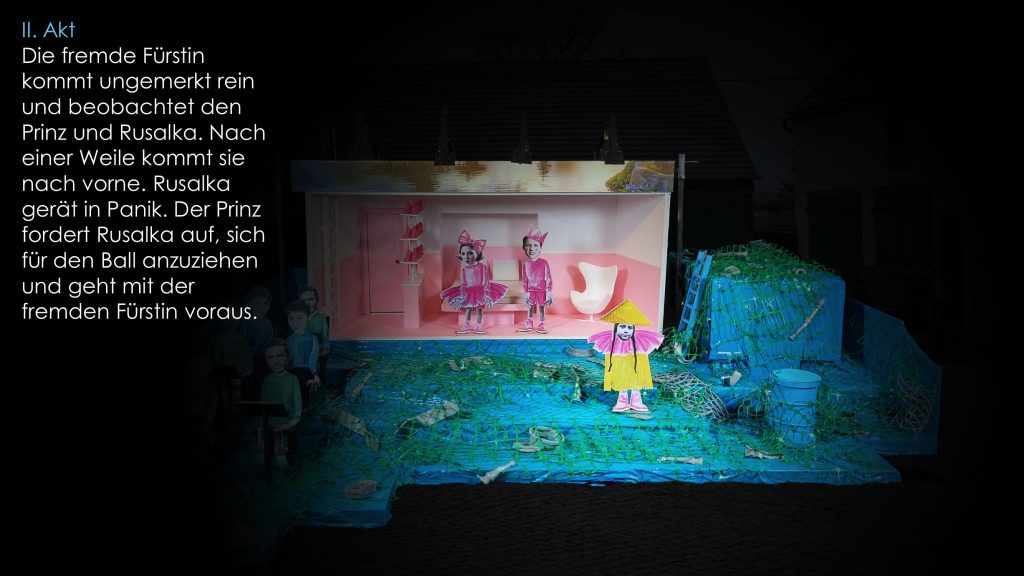
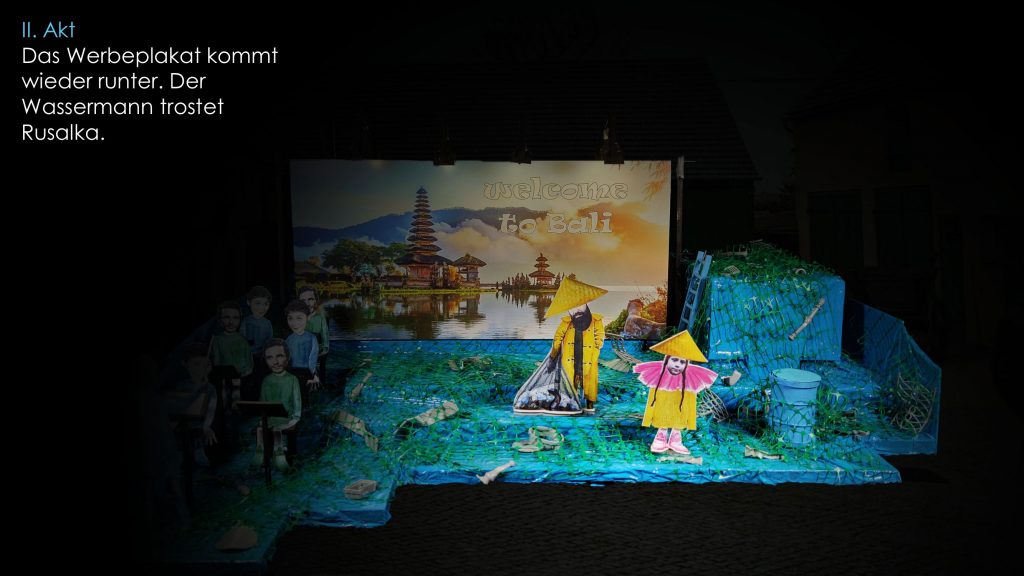
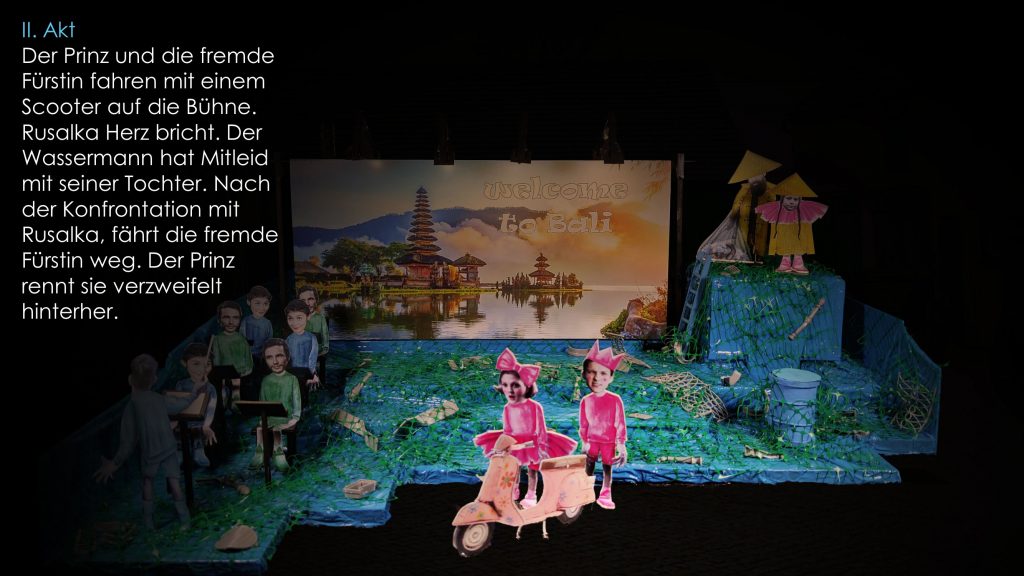
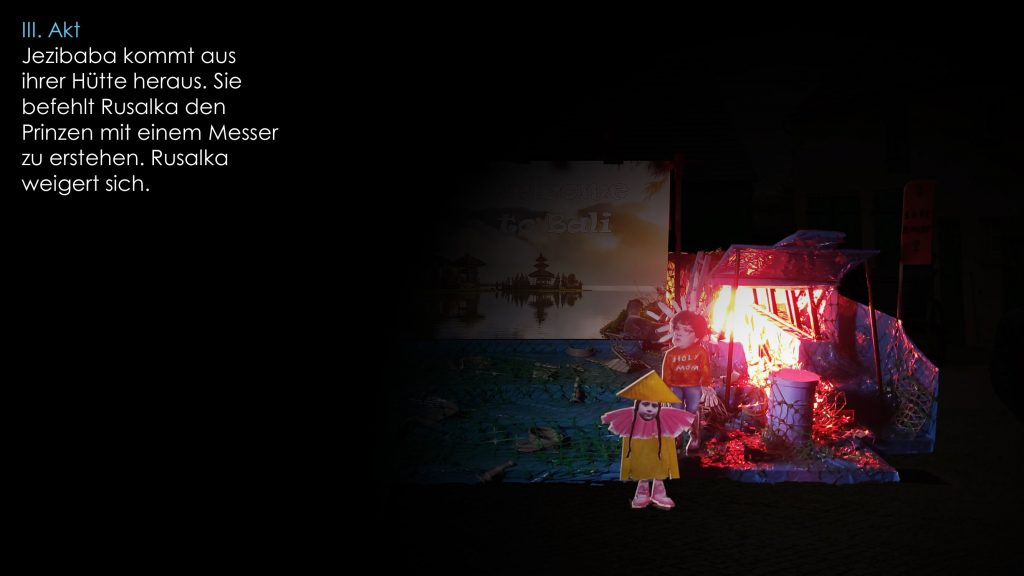
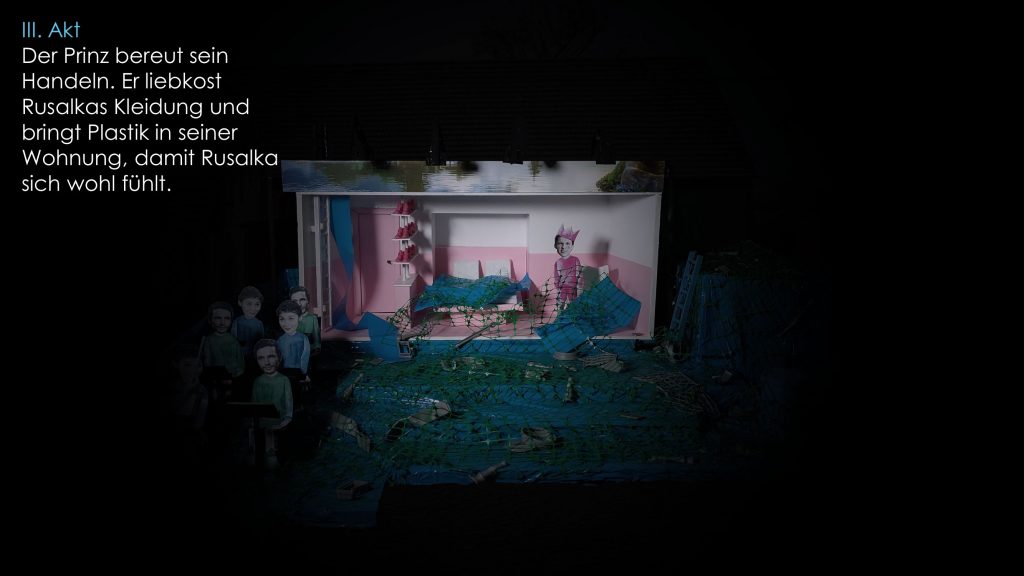
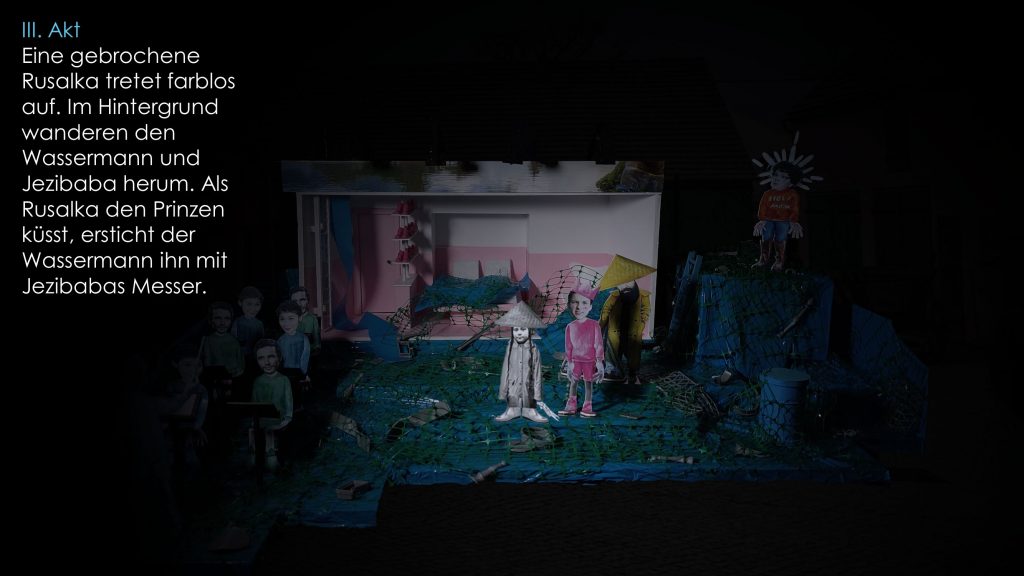
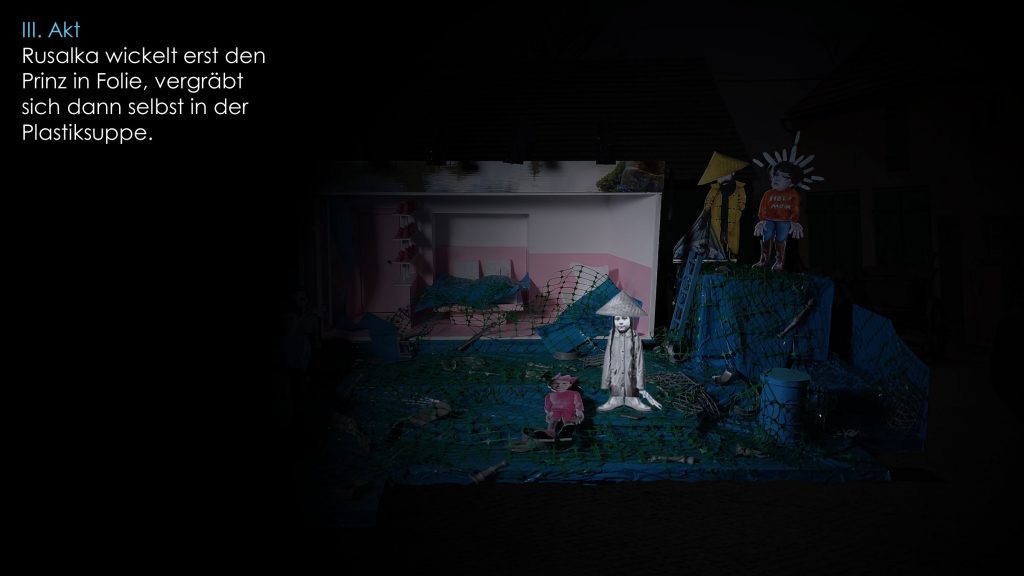
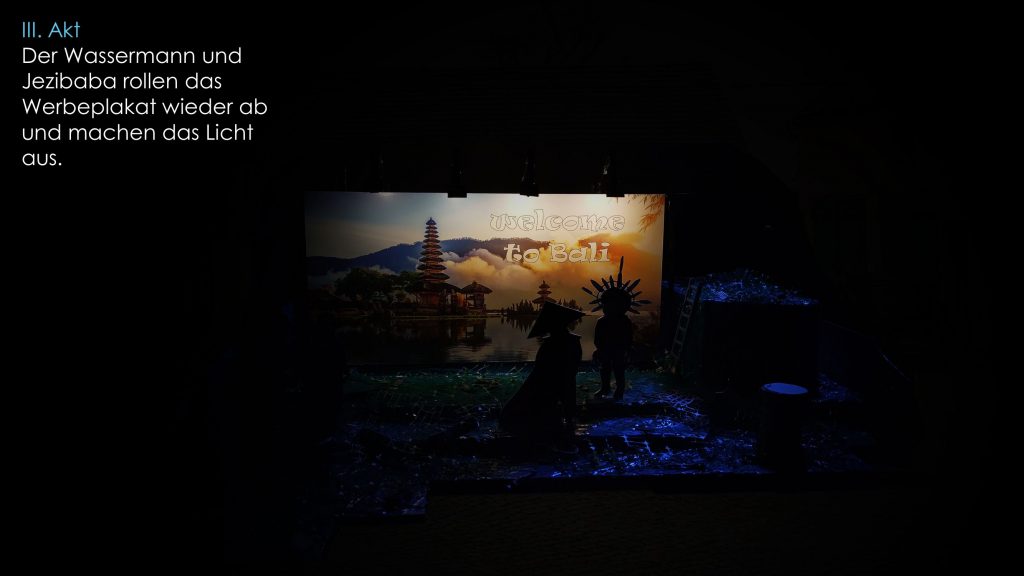
By moving the story of Rusalka to Bali, where a young creative man – the Prince – comes into contact with a local fisherman’s daughter – Rusalka – the production touches on the following themes:
- The gap between rich and poor, widened by the migration of Western young adults to low-wage countries like Bali.
- The pollution of the seas, caused in part by the consumerism of Western youth, which is a disaster for local fishing communities in Bali.
- Wasteful relational ineptitude, particularly characteristic of spoiled western young adults.
It is the explicit intention of the production that the young people recognise themselves in the prince. Like him, they come into contact with the mysterious daughter of a local fisherman during their holiday in Bali, who opens their eyes to some things in the world.
